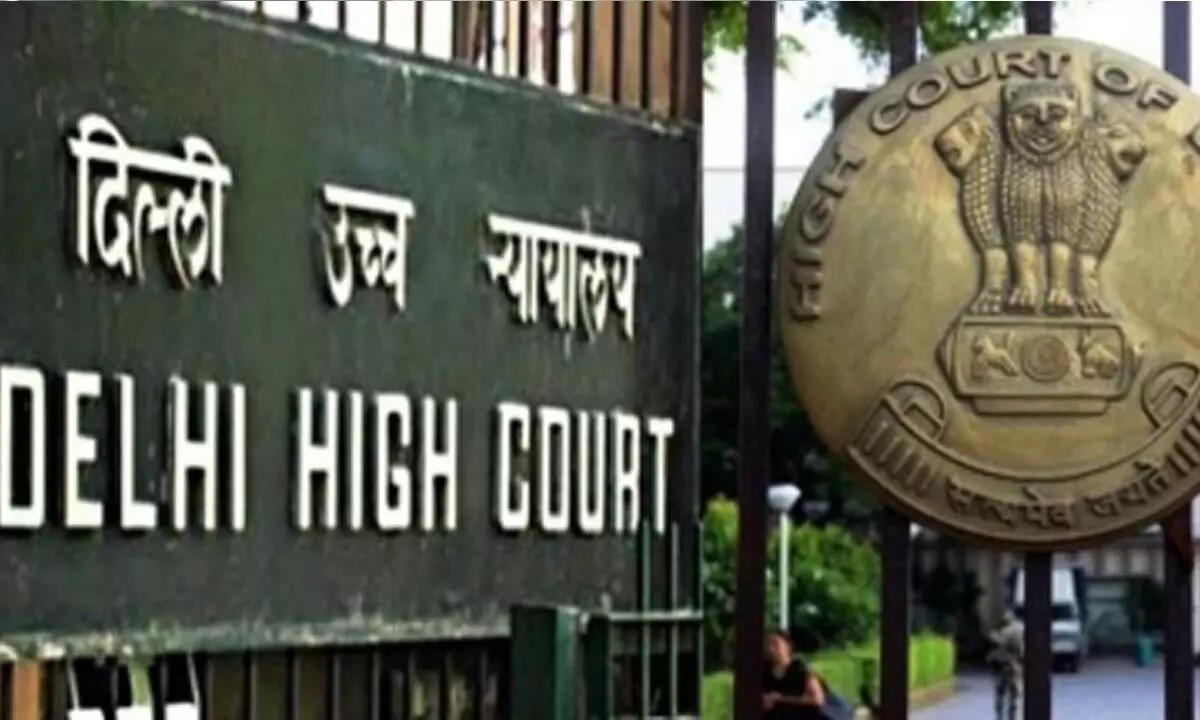Live
- NDA alliance jubilant after Modi, Shah visit
- Vote for TDP means end of welfare schemes: Jagan
- PM Modi attacks Jagan govt on graft
- OFM signs contract with ICG
- Govt jr colleges to hold remedial classes
- Hyderabad students put up a good show in ICSE, ISC exams
- Malkajgiri Parliamentary Constituency: Ahead of polls, RWAs tap party bosses for redressal of long-pending problems
- Alliance formed for public welfare: TDP leader Abdul
- Bandi Praja Sangrama Yatra inspired 'En Mann En Makkal'- TN BJP chief A Annamalai
- Politics of threats no longer exist: MLA Mekapati
Just In
Delhi HC closes petitions seeking introduction, implementation of Uniform Civil Code

The Delhi High Court on Friday put a stop to the matter concerning a series of petitions seeking introduction and implementation of the Uniform Civil Code (UCC), observing that the Law Commission of India is already considering the matter.
New Delhi: The Delhi High Court on Friday put a stop to the matter concerning a series of petitions seeking introduction and implementation of the Uniform Civil Code (UCC), observing that the Law Commission of India is already considering the matter.
A division bench headed by Acting Chief Justice Manmohan referred to a Supreme Court's judgement of April which has held that enactment of law lies exclusively within the domain of legislature and that a mandamus cannot be issued to the legislative to enact law.
The petitions, filed in the form of Public Interest Litigations (PILs), now stand withdrawn from court.
"They (Law Commission of India) are an authority constituted by the Constitution of India to do it...They will do it," the bench, also comprising Justice Mini Pushkarna told BJP leader and Advocate Ashwini Kumar Upadhyay, who was one of the petitioners in the matter.
"They are undertaking the exercise. You want the process to be interdicted. When the law commission is seized of the matter, leave it to that to do it. It will amount to stopping them from working,” the bench added.
While the court disposed of the pleas, it granted liberty to the petitioners to give their suggestions to the law commission.
On November 21, the high court had posted the petitions for December 1 while observing that it cannot do anything if the Supreme Court has already decided the issue.
The same bench had observed that an apex court bench, in March this year, had declined a plea for gender and religion-neutral laws.
The bench had said: "The Supreme Court has already decided the matter... If the matter is covered by the Supreme Court, then we cannot do anything."
The court had noted that none appeared for the petitioners during the proceedings and that Upadhyay had to place on record his prayers in the petition before the top court.
The bench then deferred hearing the petitions. In April, the high court had said that implementation of a UCC was prima facie not maintainable and asked the petitioner to present any prayers he had previously made to the Supreme Court with analogous issues.
Besides Upadhyay's petition, there were four other petitions as well which have contended that India "urgently needs a Uniform Civil Code".
The petitioners had contended that gender justice and gender equality, guaranteed under Articles 14-15 of the Constitution and dignity of women, guaranteed under Article 21 of the Constitution, cannot be secured without implementing Article 44 (the State shall endeavour to secure for citizens a UCC throughout the territory of India).
According to the petitions, the personal laws, which are based on the scriptures and traditions of many religious communities, will be replaced by the UCC, which will have a uniform set of regulations controlling every citizen of the nation.
The Centre had earlier claimed that citizens of various religions and denominations adhering to various property and matrimonial laws is an insult to the unity of the country and that India will become more integrated as a result of the Uniform Civil Code.

© 2024 Hyderabad Media House Limited/The Hans India. All rights reserved. Powered by hocalwire.com






